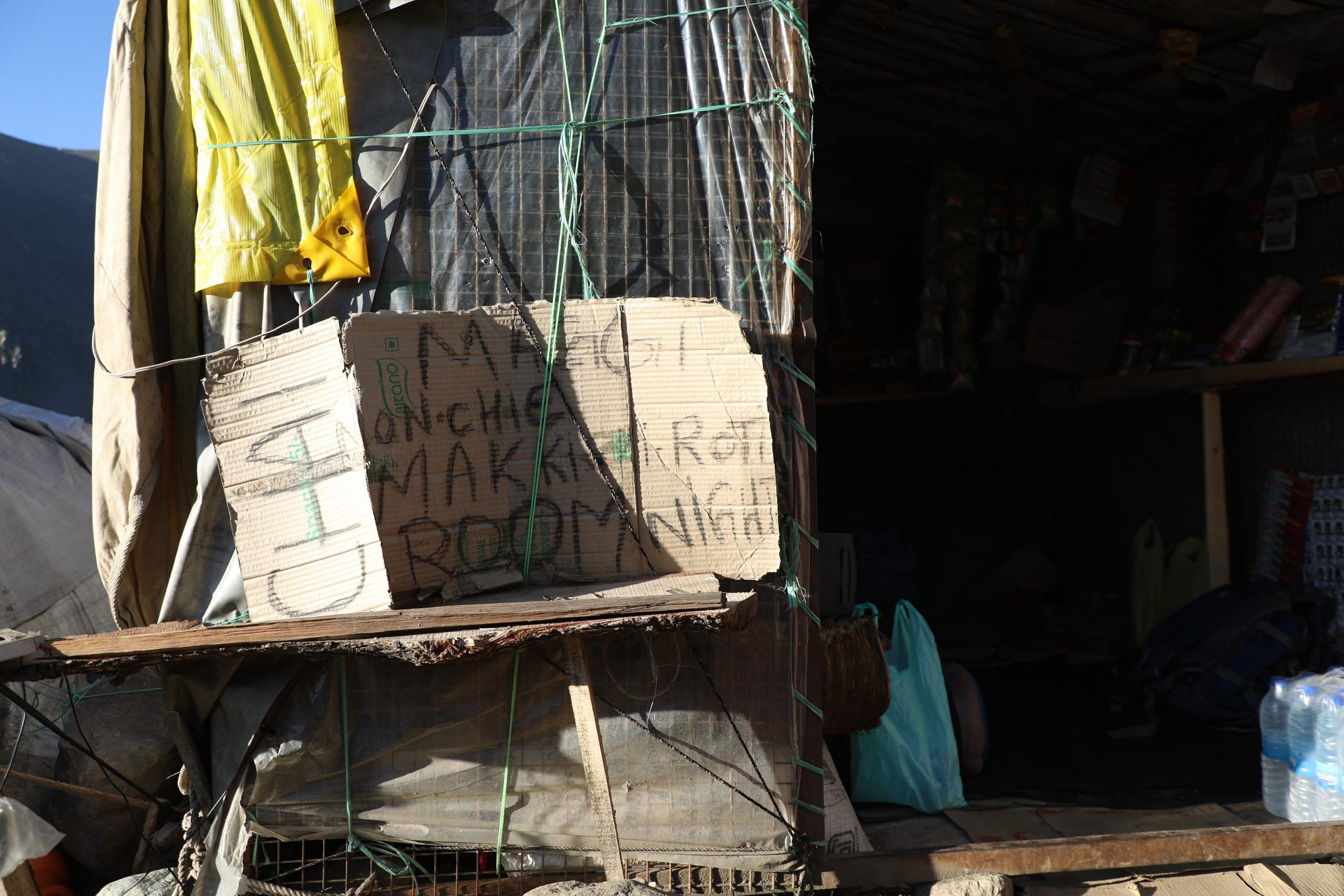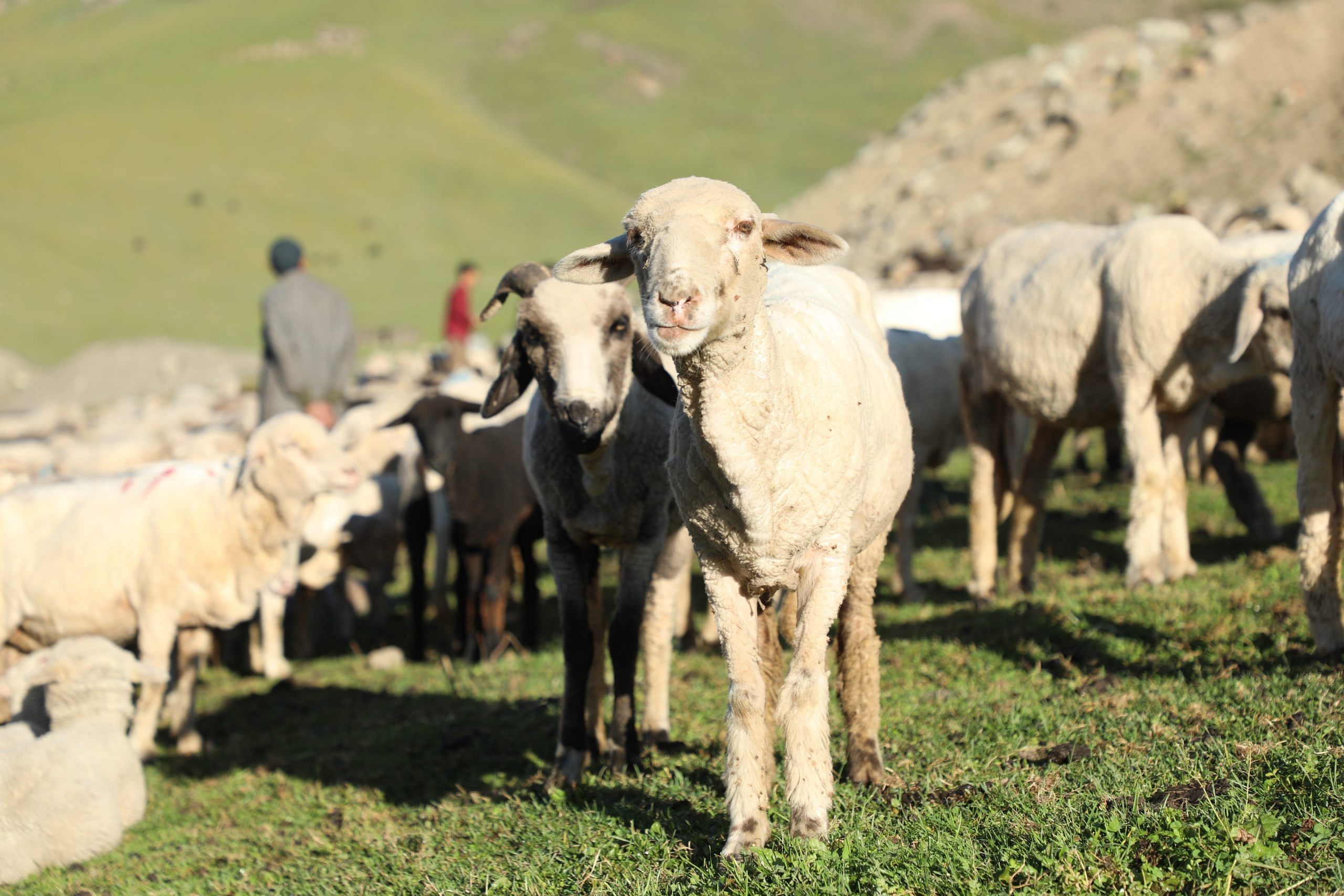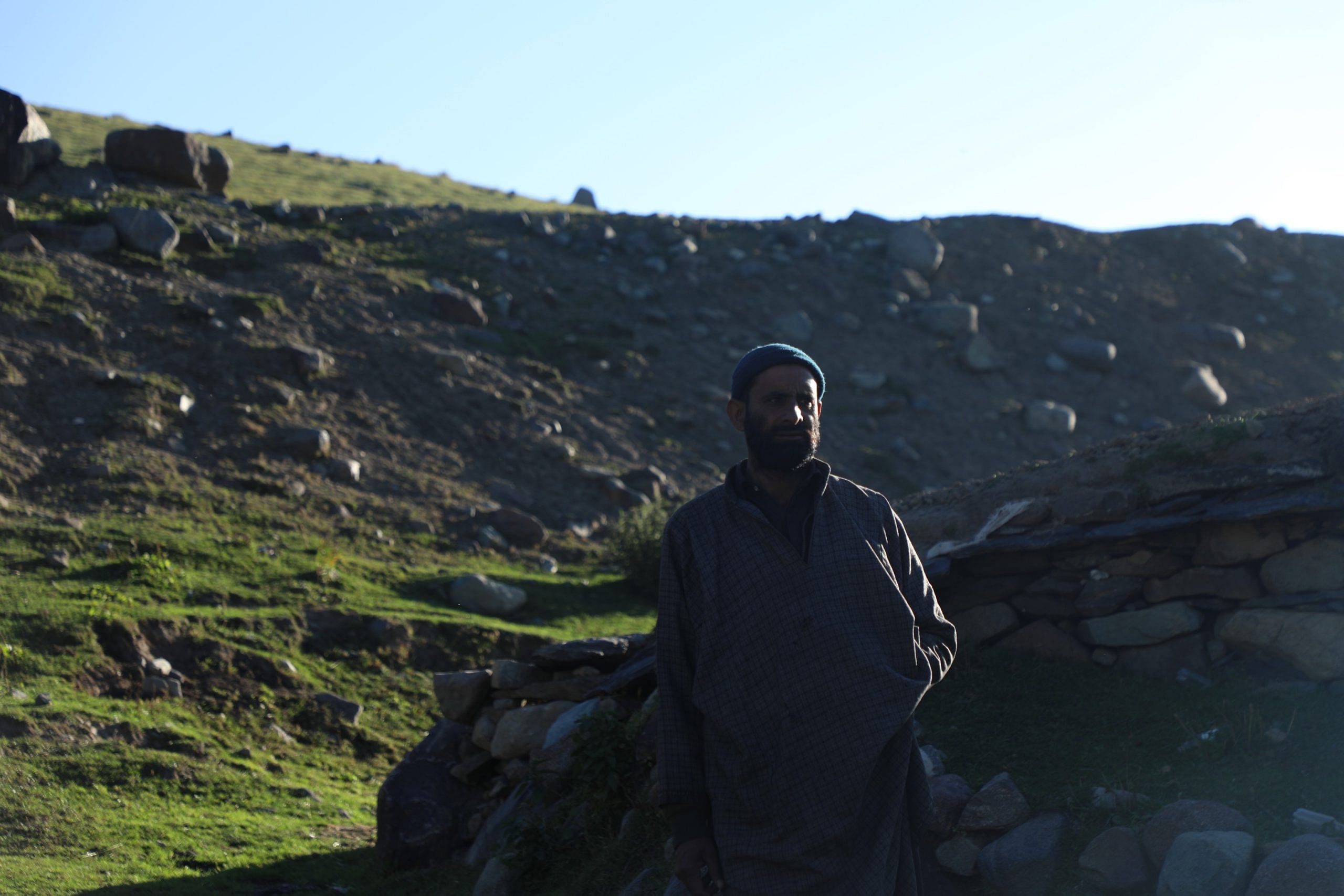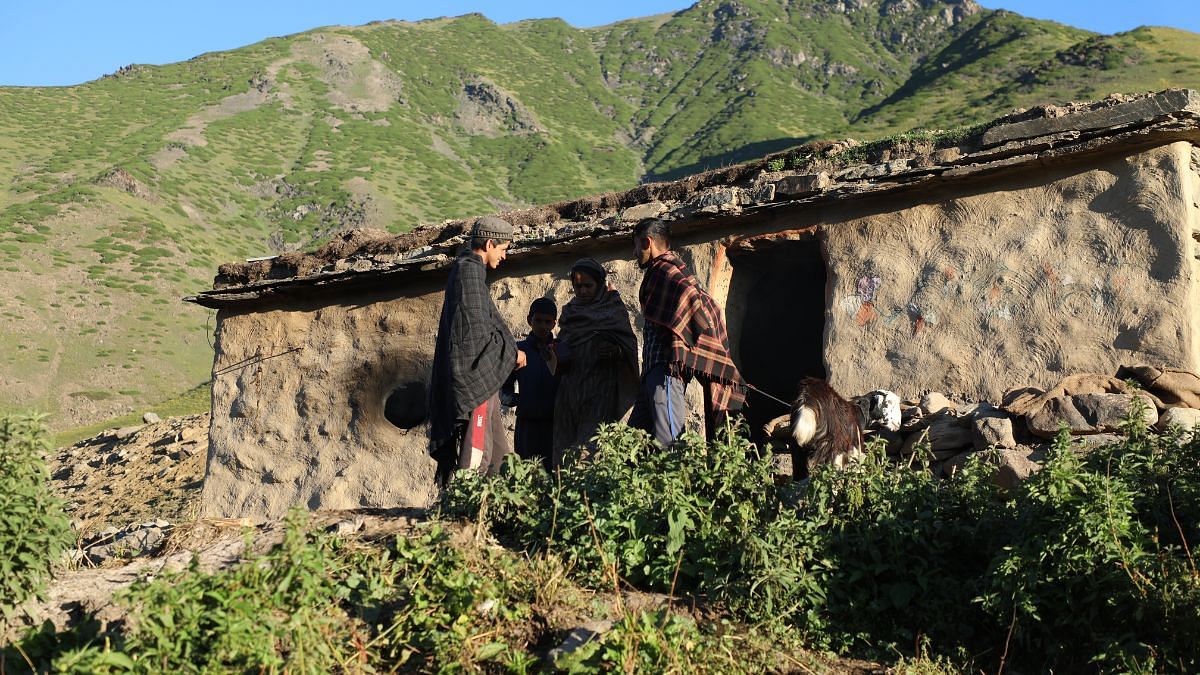Things haven’t worked out, though. Kashmir’s wildlife authorities have been demanding that Iqbal tear down the shack, saying he has no title to the land nor to gather firewood to brew tea. The trickle of tourists has dried up.

Later this week, the south Kashmir district of Shopian—long the heartland of both jihadists and Islamists seeking secession from India—will vote in the first assembly election since the Prime Minister decided to abrogate Article 370 in 2019.
Ethnic Kashmiris in Shopian, like voters across the region, are focused on special constitutional status and questions of ethnic identity. But the Gujjar-Bakarwal nomads who live in the Pir Panjal mountains, running along Shopian’s southern rim, are mainly talking about survival.
A long, dry summer meant little grass has grown in the meadows on which nomadic communities’ herds of sheep and buffalo depend. Production of milk and ghee, critical to Gujjar-Bakarwal summer incomes, has fallen. Large numbers of livestock have developed illnesses. Iqbal says he lost three horses, each worth ₹1.5 lakh, to illness and because a government veterinarian made just one cursory trip to tend to them.
Littered on the grinding climb up the Girjan valley are enormous piles of white—wool simply abandoned by Bakarwals because the price has fallen from over ₹100 a kilo last year, to below ₹20. “The price won’t even cover the cost of hiring a horse to ferry the wool to market,” says Inayat Bakarwal, who lives in the valley leading to the Nandan Sar lake. “There was no choice but just to dump the wool we sheared this year.”
Elsewhere in the country, images of farmers dumping crops have made national headlines. The agrarian crisis on the Pir Panjal, though, failed to catch the attention of politicians or the media.
“The government has done absolutely nothing for us these past five years,” complains Iqbal, “not one single thing.”
“The least they can do is let me run my tea stall in peace, but the wildlife department has a problem with that, too.”
Also Read: ‘PDP will play role of kingmaker after J&K polls’. Iltija Mufti gears up for her 1st political battle
The war in the mountains
Legend holds that the seven lakes are living rishis, or saints, whose kindness blesses Shopian with the water that feeds its famous orchards.
The wrath of the meditating Nandan Sar, the largest lake, once fell on his five unruly brothers, one version of the story holds. But the errant brothers were saved by the intercession of their kind sister, the lake of Kal Dachni.
The Girjan valley, the Gujjar-Bakarwal believe, is populated by ferocious mountain spirits; its name is derived from the words for “thunder” and “djinns”.
The Gujjar-Bakarwal hold occupation rights to the meadows, granted to their ancestors, and formalised under the Dogra monarchy. Successive governments in Jammu and Kashmir have respected those rights, but clashes with wildlife authorities over sizes of herds and foraging firewood have been commonplace.

Ever since the late-1990s, Indian security planners have understood that these mountains, and the Gujjar-Bakarwal who inhabit them, hold the keys to securing the valley. The passes into the lake lead south-west into the districts of Rajouri and Poonch, where the Gujjar-Bakarwal spend their winters. From Peer Gali, towns like Darhal and Baffliaz are just a day’s walk.
Terrorists operating in southern Kashmir often retreated into the mountains to evade Indian security forces, train new cadres, and store caches of weapons.
Led by figures like former Saudi Arabia-based businessman Tahir Fazal, Gujjar counter-insurgent militia successfully worked with the Jammu and Kashmir Police to take on jihadist groups in the mountains. The support of Gujjar counter-insurgents led to hundreds of Lashkar-e-Taiba and Jaish-e-Mohammad terrorists being eliminated across the Pir Panjal.
Even though levels of violence remain relatively low, a string of on incidents along the Pir Panjal rim since 2021—among them, the assassinations of local politicians and migrant workers in Shopian, and ambushes targeting the Army in Rajouri’s Dera-ki-Gali—have shown small numbers of highly-trained jihadists have returned.
“The terrorists now operating in the region,” a senior police officer told ThePrint, “are highly trained and disciplined, with years of combat experience in Afghanistan behind them. The levels of intelligence we have on their mountain operations just isn’t good enough.”
“Fifteen years ago,” says Peer Gali resident Imtiaz Khan, “terrorists would walk into our dhokes (stone huts), demand food, and take shelter for days on end. Today, they deal only with a handful of people they completely trust and avoid any contact with the mountain communities.”
To ensure terrorism doesn’t spread in southern Kashmir, security officials say, support of the Gujjar-Bakarwal is again needed. But the community is sullen about what many see as a betrayal of their service in fighting terrorism.
Tahir Fazl’s words are tinged with that bitterness: “Like us, the Army really loves its horses and mules, and cares for them like children. Then, one day, those mules get old, and they shoot them through the head. That was our fate, too.”
The politics of backwardness
For generations, Gujjar-Bakarwal have lined up behind the family of Mian Altaf Ahmad Larvi—the five-time MLA, and now MP, who is also Caliph, or ruler, of a Sufi spiritual dynasty that controls the great shrines of Shahdara Sharif and Kangan.
From the time of his grandfather, Mian Nizamuddin Larvi, who was first elected an MLA in 1962, the Larvi family has supported the National Conference. The relationship gave the Gujjar-Bakarwal political influence—and the National Conference a bloc vote, which cut across almost all of Jammu and Kashmir’s districts.

Last year, though, Prime Minister Modi’s government legislated reservations for Paharis, a linguistic group which includes upper-caste Hindus and Muslims. The government says the new quotas will not affect the Gujjar-Bakarwal, but the debate crystallised long-simmering grievances.
From 2014 on, when the People’s Democratic Party-Bharatiya Janata Party alliance took power, the community came under assault, Gujjar-Bakarwal leaders allege. “The Mughal Road, linking Shopian and Rajouri, was built in 2012,” notes National Conference activist Irshad Khan, “and so were the shelters to protect people trapped in snow-storms.”
“There has been nothing built for the Gujjar-Bakarwal after that.”
Education is key among Gujjar-Bakarwal grievances. For the summer months, many Gujjar-Bakarwal children travel with their families onto mountain pastures. From 2000 on, the Jammu and Kashmir government began appointing part-time teachers recruited from the community to ensure the education of primary school children remained unaffected. Low salaries and the lack of prospects of permanent jobs, however, have led many to leave their positions. Few vacancies have been filled.

From his dhoke on the mountain stream that drains the Nandan Sar, Mohammad Sarfaraz now runs a school for children from the Darhal area as a volunteer. “The life of a nomadic community involves special hardships,” he argues. “The government has ensured Gujjar-Bakarwal backwardness, by dismantling our education system.”
Lack of basic services, Sarfaraz says, also imposes a burden on the community. “Last year, when my elderly mother fell ill, four of us carried her to the road on a charpai (cot) and then waited for a passing truck driver who gave us a lift to Shopian.”
Absence of a state support system for their agrarian economy, many Gujjar-Bakarwal argue, is the community’s biggest problem. Kashmir has no industrial meat or dairy processing sector, making the Gujjar-Bakarwal economy precarious. “Apple orchard owners in Shopian get subsidies to improve their orchards,” Iqbal says. “Why don’t we?”
Also Read: Calls for justice, barbs at Modi as Engineer Rashid roars at 1st J&K rally. ‘Zulm ka badla vote se’




